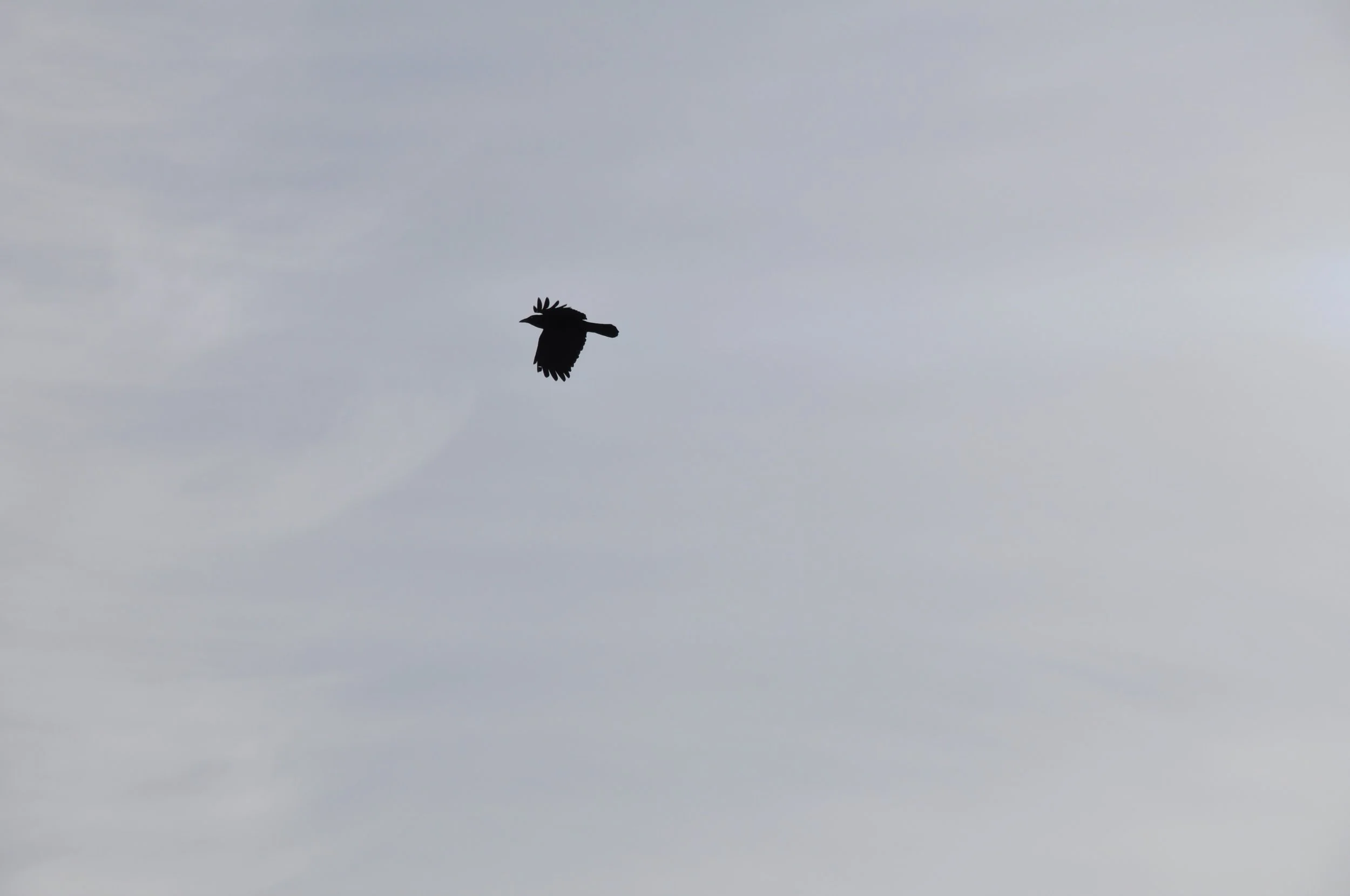‘Morning Crows’: A Poem by Alberta Dempsey
A crow in flight just north of Ellis Pond outside Yellow Springs. (Photo by Audrey Hackett)
morning crows
the murder of crows used
to sit outside my window
and cry like new born children.
i did not think i would miss them,
but today i woke in the cold air
and cawed like they did,
a rough and pock-marked croak
scratched out quick from my throat.
i used to see
them perch and grip
and peck at seeds dehisced,
shiny eyes gleamed with knowing.
i want to hear them crowing
and showing their wisdom again.
their morning broadcast:
the death of a season
has come to pass,
so abandon your nests
of twigs and grass.
leave the land to sleep
under the blanket white,
if you stay too long,
you won’t survive.
i sense the warning in their eyes
and i mock their call,
with my will to thrive,
and think what nests
i must abandon
before i too, can fly.
—Alberta Dempsey
Winter is crow season in our part of Ohio. Morning and evening, crows flap over Yellow Springs, sometimes singly, sometimes in a stream. They congregate in large flocks in outlying cornfields, or perch alone at the top of the tallest trees. And when they’re not visible, they’re often audible. Caw caw!
Crows are among Earth’s most intelligent creatures. They’re social, vocal, curious. They use tools and even make them. In Norse legend, a pair of ravens (near cousins to crows) brought information from around the world to the god Odin. Crows know.
And they know in this poem, contributed to the blog by Agraria Research Steward Alberta Dempsey. As background to the poem, Alberta told me that crows have a “very distinctive alert call” that’s frequently issued when humans approach. Crows “broadcast,” as the poem puts it — though the precise content of that broadcast may be elusive. “We have to guess a bit at what more they have to say, and listen in a more interpretive way for their message for us specifically,” Alberta said. That, to me, is what this poem does.
A final note: if you’re not familiar with the term “dehisced” (I wasn’t), this is a wonderful word to add to your botanical, not to mention metaphorical, vocabulary. Dehisced means the splitting or bursting open of a seed pod or wound. Both senses seem relevant here.
—Audrey Hackett

